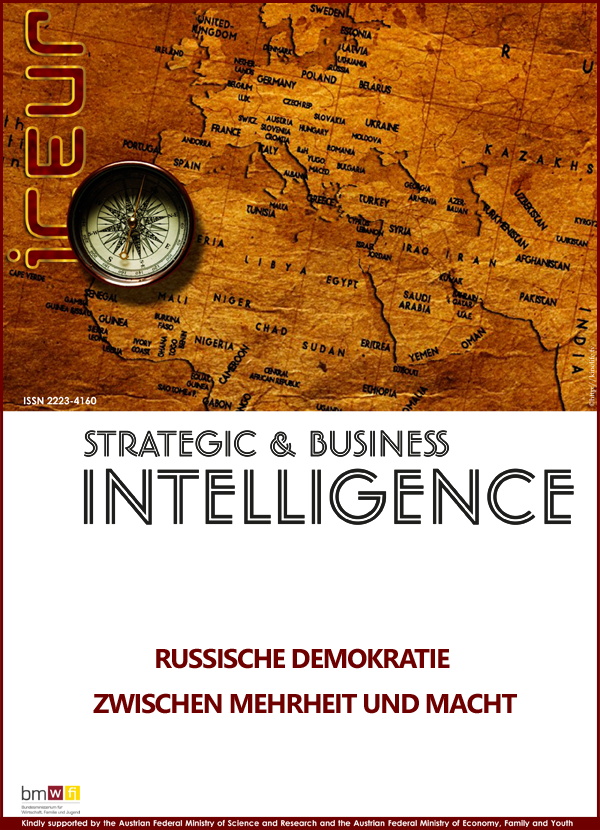As many Russian thinkers of the 20th century wrote, until the end of the 18th century Russia was not a society but a state. Even today the state fulfils the tasks society is meant to perform. The second edition of ICEUR’s analyses, which was presented at the Round Table on October 17th 2011, presents various viewpoints on Russia and the topic of democracy.
In his article Christian Stadler states that the formation and cultivation of democracy is not so much a problem of historical change than an ethical matter of how a given democracy shapes itself and how power is exercised. In Stadler’s opinion, the traditional “Russian majority” is now faced with the challenge of legitimizing dominance. In this context, he recognizes a potential regarding a political change in the elections of 2012.
In Vladimir Kantor’s point of view the reason why the state performs the peoples tasks lies in the shortcomings of Russian democratic traditions. In his article he traces the possible causes for democracy’s defeat in Russia throughout the history and tries to find an answer to the questions, why it seems impossible to establish a European-American type of democracy in Russia and if today there are possibilities to so at all.
Boris Kagarlickij analyses the Soviet political heritage and its implications for democracy in Russia and argues in what regards today’s Russia should and could benefit from and transform the Soviet tradition.
Similarly, Alexander Logunov takes a closer look at the Russia’s very own democracy at times of the Soviet Union to gain deeper understanding for democracy’s condition in Russia and the possibilities to establish democratic values.
Gleb Pavlovskij discusses how relevant a “stable majority” is for the system in Russia. Comprehension of the way how to utilize the “majority” in Russia has become the key factor in establishing an understanding for the future of the system and potential alternatives. Without doubt, the Russian governance is dependent on its own “majority” but in what kind of relation they find themselves intertwined with each other is another relevant matter that has not been given the necessary attention.
